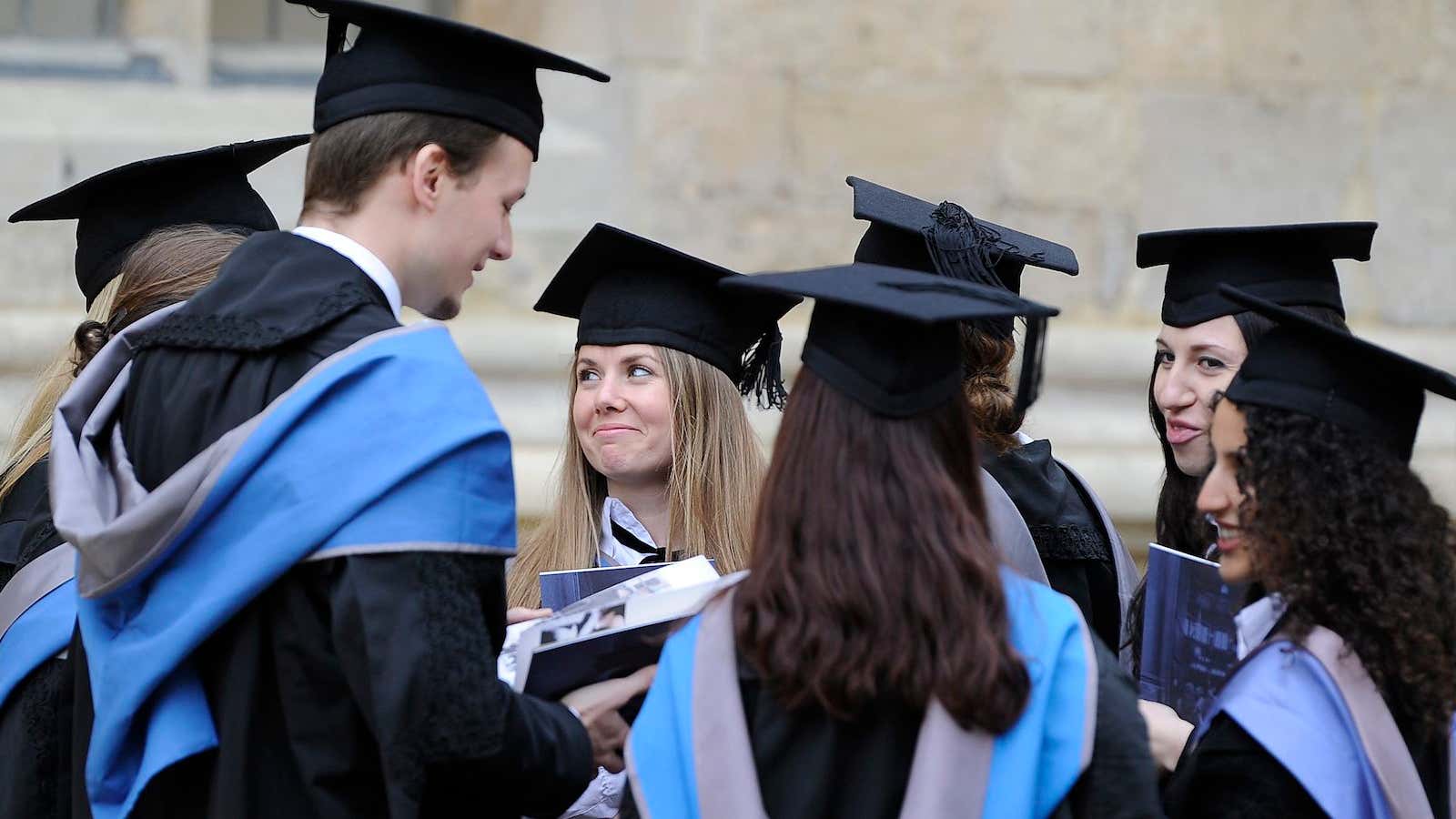London has a single university that can be considered among the 10 best in the world—Imperial College—and it wants to change that.
The London School of Economics has been given the go-ahead for a £120-million ($179-million) revamp of its campus in Holborn, demolishing four buildings and rebuilding them alongside a new public square, by 2018. University College London is constructing a massive second campus called UCL East near the site of the 2012 Olympics. Kings College London is taking over a historic former BBC building. And Imperial is not resting on its laurels, spending £3 billion to redevelop 25 acres of land in West London, including a £200-million research hub (paywall).
All told, the Evening Standard puts the total cost of London’s education spending spree at £4 billion, or $6 billion. The thinking goes that this will make higher education in the capital as attractive to foreigners as the city’s many other globally-competitive industries.
London’s universities believe they are well placed to catch up with Oxford and Cambridge, as well as global rivals like the Ivy League. Imperial’s expansion follows the appointment of Alice Gast as president, poaching her last year from Lehigh University in Pennsylvania. This is appropriate, as much of the best higher education in the US has historically been privately funded—and its universities have generated profits by attracting foreign students as well as opening campuses overseas.
But the entire higher education system in the UK was almost entirely funded by the state—and was free—until 1998. At that point, universities were allowed to charge £1,000 a year to students, which has been increased over time. It is currently set at a maximum of £9,000 a year for universities in England. (Scottish universities are still free for locals, though students from England and elsewhere must pay tuition fees.)
In the old days, there was a cap on the maximum number of students a university in the UK could take. Since 2013, as the taxpayer no longer pays for them, universities can take in an unlimited number of students. The fee inflation has led to massive street protests—but at the equivalent of $13,000 per year at the most, they are much cheaper than private higher education in the US, where average annual university tuition is more than $31,000.
Which makes UK education very attractive to students from all over the world—particularly in the country’s vibrant capital. London’s higher education institutions smell an opportunity.
